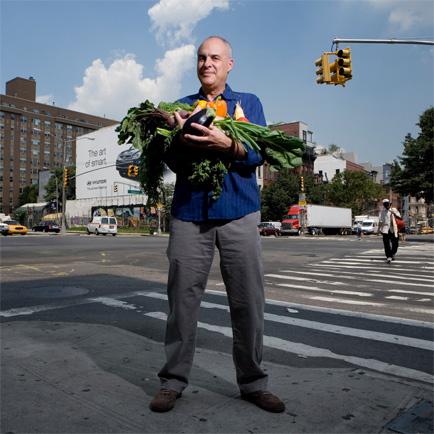A year ago, our president Hank Campbell wrote a commentary when Mark Bittman vacated his post at The New York Times to sell vegan food to the masses. The last paragraph gives a sense of how he feels about Mr. Bittman:
"Still, though we have been critical of his claims in the past, the American Council on Science and Health wishes him well. The country is better off with him trying to sell eggs that contain no eggs than having him trying to use his opinions to shape food policy."
Little did he know, one year later, that Mark Bittman would already have left his position selling no-egg eggs to do exactly what Hank feared.
The Columbia University Mailman School of Public Health announced this week that Bittman is joining the faculty of health policy and management. His job description looks like this:
- Consider how agricultural practices and dietary choices affect population health
- Teach and advise graduate students
- Complement the research efforts of the School’s Obesity Prevention Initiative
- Build a new series of courses on food
- Plan a regular lecture series tentatively titled Food @ Columbia
Bittman left The New York Times last year to “take a central role in a year-old food company, to do what I’ve been writing about these many years: to make it easier for people to eat more plants.” The company, Purple Carrot, is a meal delivery service that is entirely vegan. But, his tenure there lasted just a few months and they announced last spring that he was leaving the company.
He can now add 'professor' to his CV though his actual credentials only include writing cookbooks (there are 19 books for sale on his website,) giving TED talks, and blogging for The New York Times.
No doubt, Bittman will use this new forum to advocate for the social engineering changes that have become his hallmarks - more taxes, legal restriction of advertising of food he dislikes, eating less meat and cooking vegan food at home.
Criticisms of Bittman's ideas in the past have focused on the lack of scientific evidence behind his claims about both food and cosmetics. His mantra—that we need to eat "locally, seasonally, and sustainably"— is not necessarily a bad one for the small subset of the population that is fortunate enough to be able to afford it. Writing for The New York Times gave Bittman a podium to preach this message to the people of the world who can afford to expend the large amount of time, energy and money that it takes to meet his pretentious expectations. However, in thinking about implementing food policies for the masses, he is going to need to go beyond the Steak Tartare at Manhattan's 21 Club and start thinking about any and every kitchen around the country.
And, that is not an easy task. In New York City alone, there is a reason that breakfast is served for free in every school to every student. And, lunch is also free for any student who qualifies - just over half of the children in the city (annual income to qualify is roughly $40,000 for a family of four.) Telling these families to visit their local farmer's market for fresh kale is not going to be effective and simply will not cut it if he walks for even one block outside Columbia's lecture halls.
It's one thing to write (and sell many copies of) a cookbook stating that we should all eat vegan before 6 pm. It's another to try and institute policies with obtainable goals in order to increase health awareness for everyone in our country. We here at the Council hope (but it seems like a longshot) that 'Professor' Bittman is up to the challenge. It will take flexibility on his part and an interest in relying on the science that should be the scaffold that he builds his policy ideas on. Without that, he will be nothing more than another toney foodie who let science, and the public, down.




